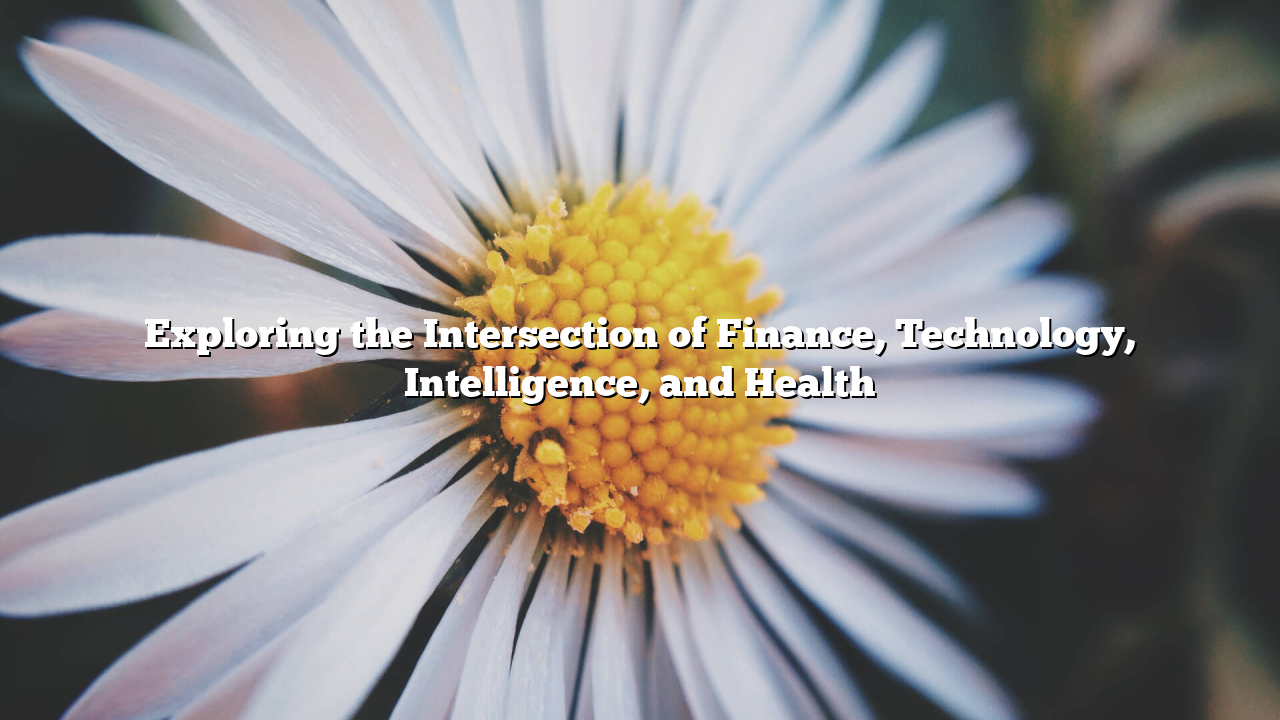Introduction: The intersection of finance, technology, intelligence, and health is becoming more pronounced as these fields continue to develop and influence each other. The synergies between them are expected to have profound effects on the future of economies, societies, and individual lives. This article delves into how these sectors interact and evolve, reshaping the way we understand health, finance, and technology.
Finance and Technology: The financial sector has long been known for its reliance on data and technology, but with the rise of fintech, these elements have reached unprecedented levels of integration. Financial technology companies are leveraging the latest innovations, such as blockchain, artificial intelligence, and data analytics, to streamline processes and deliver more efficient, transparent, and secure financial services. This technological revolution is not only transforming the way we bank and invest but also enabling new financial products that were previously unimaginable.
Artificial intelligence is transforming the financial industry by enabling predictive analytics, real-time risk management, and more accurate fraud detection. By leveraging vast datasets and powerful algorithms, AI enhances decision-making capabilities and reduces human error. Furthermore, the implementation of blockchain technology in finance offers decentralized systems that improve transparency and security.
Intelligence and Technology: Artificial intelligence and machine learning are increasingly becoming vital components of various industries, especially in healthcare. AI is revolutionizing medical practices by providing doctors with powerful tools to enhance diagnosis, predict patient outcomes, and offer personalized treatment strategies based on data-driven insights. These innovations are enhancing healthcare delivery and transforming the patient experience.
In finance, AI is being used for algorithmic trading, portfolio management, and fraud detection. By utilizing vast datasets, AI algorithms can optimize financial strategies and minimize human error, while also identifying patterns and trends that would be difficult for traditional systems to uncover.
Health and Technology: Advancements in technology have significantly improved our understanding of health and wellness. From dewatogel login that track physical activity and vital signs to telemedicine platforms that enable remote consultations, technology is playing a pivotal role in enhancing healthcare accessibility and effectiveness. Wearables allow individuals to monitor their health in real-time, giving them greater control over their well-being and enabling early intervention when necessary.
The advent of artificial intelligence in healthcare has also led to breakthroughs in drug discovery, personalized medicine, and patient care. By analyzing patient data, AI-powered systems can identify potential treatments, predict outcomes, and help doctors make more accurate diagnoses. This level of precision has the potential to improve patient outcomes and reduce healthcare costs by enabling more targeted and effective interventions.
Conclusion: As we look toward the future, the integration of finance, artificial intelligence, technology, and medicine will continue to create new opportunities for innovation and improvement. While challenges remain, particularly around data security, ethical considerations, and regulatory frameworks, the potential for these fields to work together to enhance our quality of life is immense. By embracing these advancements, we can create a more connected, efficient, and healthier world.
